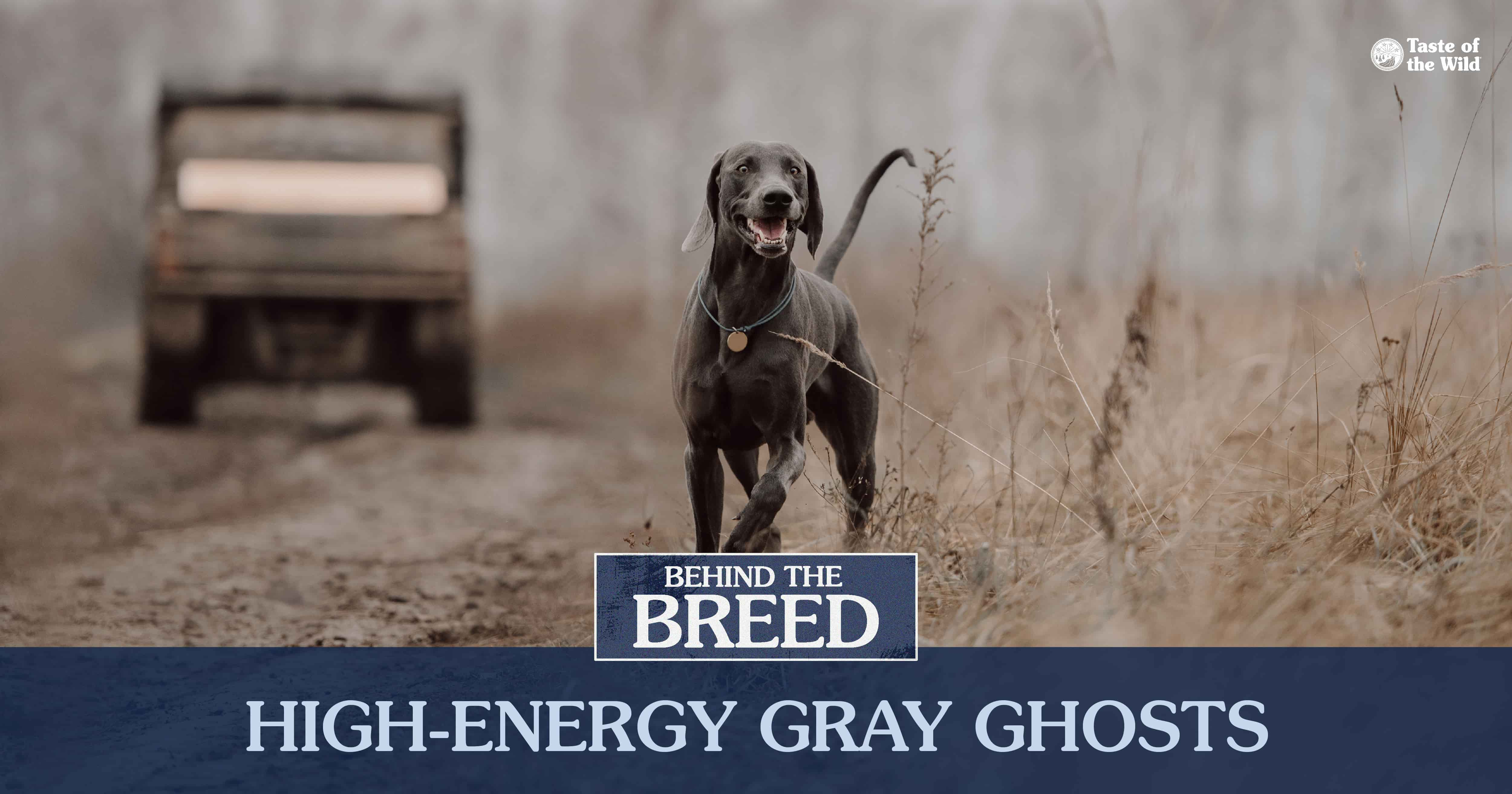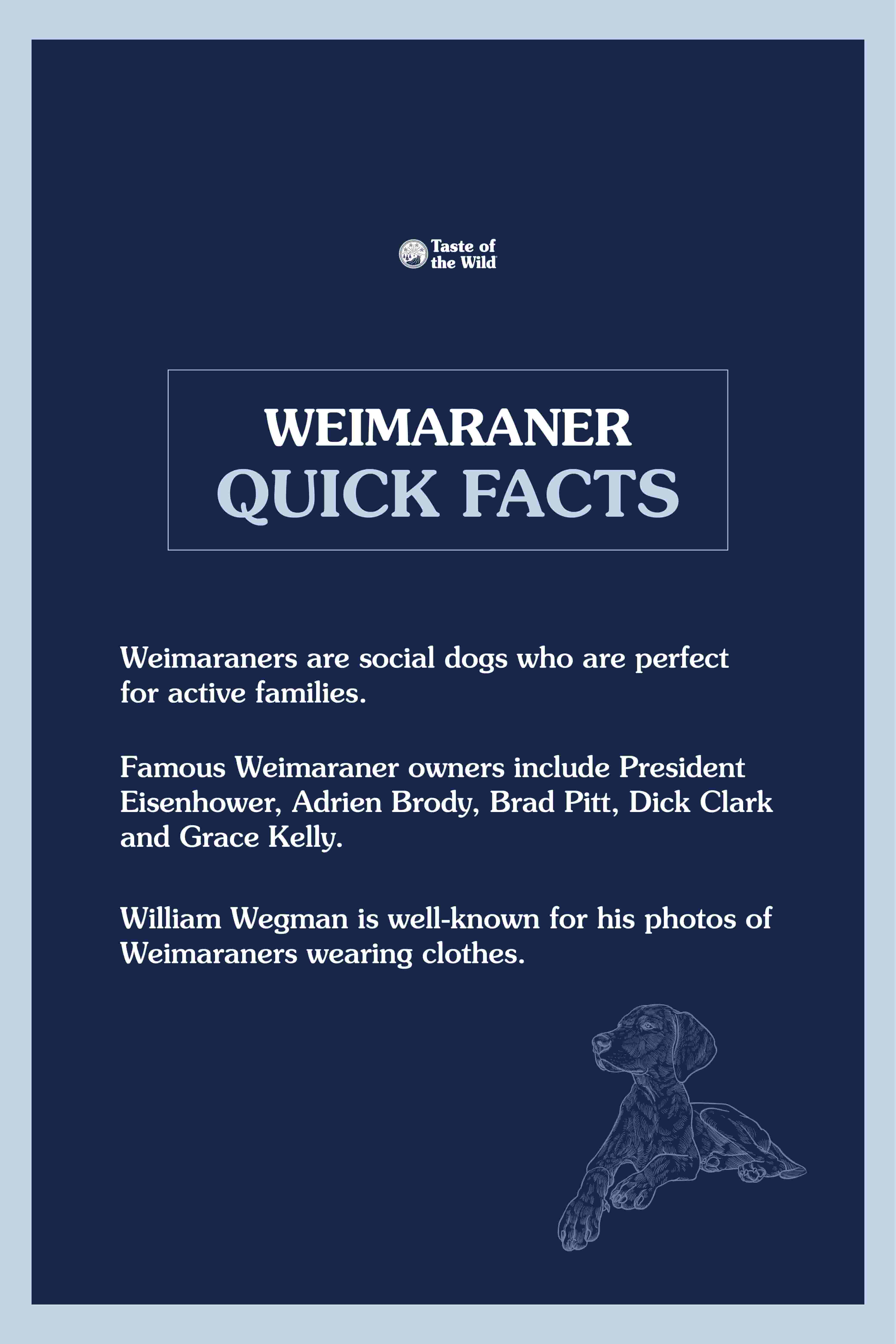
Weimaraners get the nickname “Gray Ghost” because of their silvery-gray coat color, light-colored eyes and sneaky hunting abilities. The grand duke of Weimar, in Germany, developed Weimaraners (we see what he did there) in the early 19th century by crossing bloodhounds with other hunting dogs.
Weimaraners are a large, long-legged breed that can weigh as much as 90 pounds (males). Their deep chests make them at a higher risk of bloat, so any food-gobbling behaviors should be discouraged. They are obsessed with their people, which is why they’re often given the “Velcro dog” label. If you want a dog who’s by your side for every activity you do, a Weimaraner is the perfect dog for you — and they’re great with kids, too.
These athletic and intelligent dogs make excellent running and hunting partners. Their abundant amounts of energy make them well suited to both a morning spent pointing at and retrieving game birds and an evening run in the woods.
To reiterate, exercise is life for Weimaraners. So unless you want a dirt track in your lawn because your Weimaraner is channeling their inner greyhound, it’s important to use up all of that energy with daily (or even twice daily) walks or runs. And because they’re also very smart, you need to provide plenty of mental enrichment, too. Weimaraners excel at agility, tracking and other dog sports, which is a good way to get them to exercise and use their brains.
One of the Weimaraner breed’s claims to fame is their “nooking” behavior. Weimaraner Planet explains that nooking is where the dog suckles on a blanket or soft toy without destroying it. They may also knead while they suck. It’s thought to be a self-soothing or calming behavior since they tend do it before going to sleep — although not all Weimaraners “nook.”

RELATED POST: Behind the Breed: Brittany
The information in this blog has been developed with our veterinarian and is designed to help educate pet parents. If you have questions or concerns about your pet's health or nutrition, please talk with your veterinarian.
